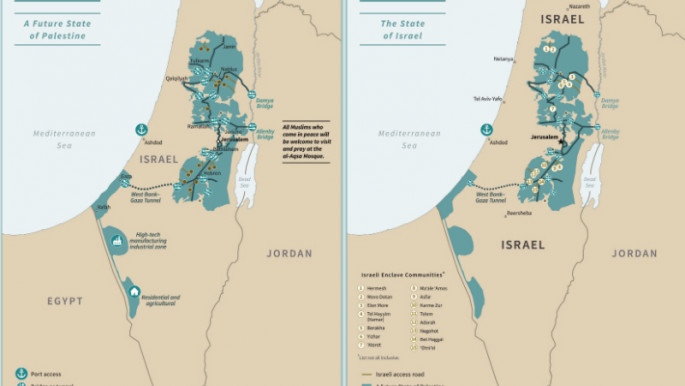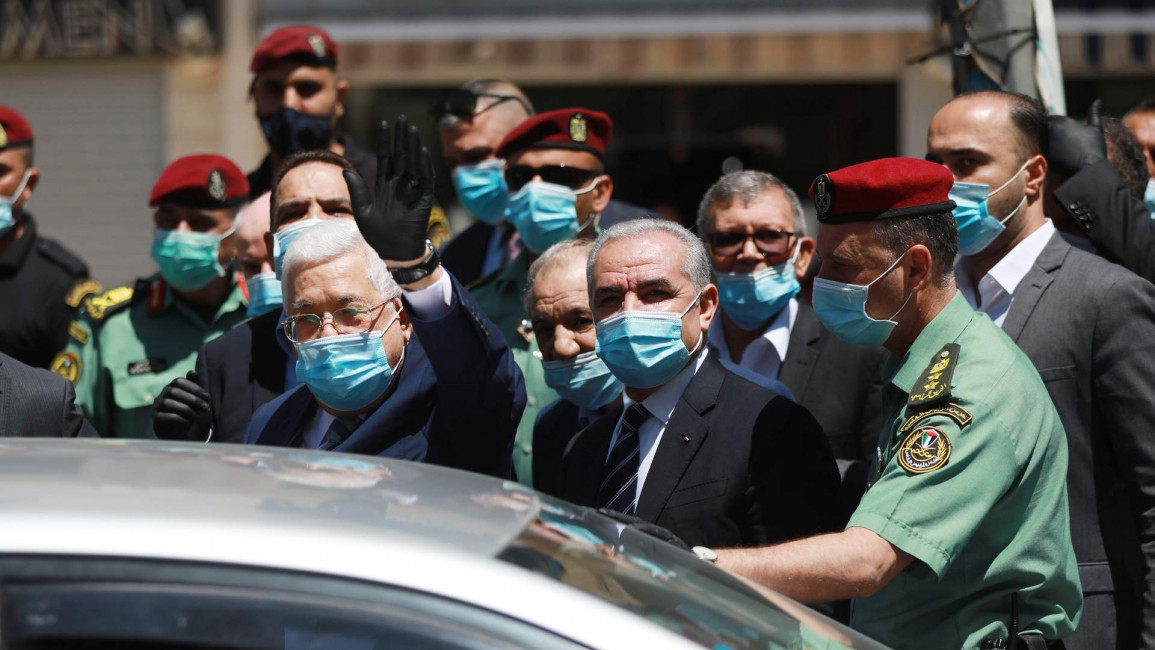Jordan's foreign minister makes surprise visit to Ramallah to agree joint response to Israel annexation
Hussein el-Sheikh, Member of the Fatah Central Committee and an associate of the Palestinian leader, told the newspaper that Safadi was meeting President Abbas to ensure a coordinated response to Israel's plans to annex the West Bank, in violation of international law.
The surprise visit was part of talks Jordan is holding with the US, EU and Arab states, a Palestinian source told Haaretz.
The Palestinian leadership is hoping for the start of an "effective pressure campaign" on Israel and the US against the planned annexation, the source added.
The source said Safadi is passing along messages from Arab leaders, including the UAE, relayed in conversations between them and Jordan's King Abdullah.
Abu Dhabi's Crown Prince Sheikh Mohammed bin Zayed Al Nahyan tweeted Wednesday: "I assured King Abdullah in our phone conversation of UAE's full solidarity with Jordan & our categorical rejection of accepting Israel's illegal annexation of Palestinian lands. We are working with our Arab brethren & the international community against this illegal move."
One of the UAE's most senior diplomats said Tuesday that although Abu Dhabi was against the Israeli annexation of huge parts of the West Bank it would not affect relations between the countries.Read more: UAE could strengthen Israel ties even after West Bank annexation
Egypt and Jordan are the only Arab states to have official diplomatic ties with Israel, although Amman has been highly critical of Israel's plans to annex West Bank territories.
In a statement by Jordan's King Abdullah this week he warned that "any unilateral Israeli measure to annex lands in the West Bank is unacceptable and undermines the prospects of achieving peace and stability in the region".
|
Palestinian Authority Prime Minister Mohammed Shtayyeh also pledged last week to unilaterally declare an independent Palestinian state according to 1967 borders, if the Israeli government goes ahead with a plan to annex one-third of the West Bank.
"If Israel is going to annex after July 1st, we are going to go from the interim period of the Palestinian Authority into the manifestation of a state on the ground. That is where we will be heading in the next phase. This authority cannot continue to be an authority without any authority," Sky News quoted Shtayyeh as saying.
The Israeli government, led by Prime Minister Benjamin Netanyahu, is planning to annex most of the Jordan Valley area and blocs of Israeli settlements in the West Bank by 1 July, in violation of international law.
A widely condemned "peace plan" presented earlier this year by US President Donald Trump awarded Israel the Jordan Valley, illegally constructed settlements in the West Bank, and East Jerusalem to Israel, leaving Palestinians with a series of non-contiguous enclaves covering only 15 percent of historic Palestine.
The Trump plan makes the creation of a sovereign Palestinian state impossible and was rejected outright by the Palestinian Authority. Israel is planning its proposed annexations in line with the Trump plan.
Shtayyeh told Sky News that the Palestinian Authority was preparing to declare sovereignty over the whole of the West Bank and East Jerusalem to counter the Israeli annexation efforts.
"What does the manifestation of the state on the ground mean? It means that there will be a founding council, there will be a constitutional declaration, and Palestine will be on the borders of '67 with Jerusalem as its capital and we will call our international community to recognise this fact," he said.
Read more: Will the Palestinian Authority really cut ties with Israel?
On Tuesday, Shtayyeh said that the Palestinian Authority would submit a proposal to the Quartet group, which mediates negotiations between Israelis and Palestinians (made up of the UN, the US, the EU, and Russia) for an "independent and demilitarised" Palestinian state with "minor modifications" to borders in the "West Bank" where necessary.
Around 450,000 Israelis live in the more than 100 West Bank settlements coveted by the Israeli government, alongside more than 3 million Palestinians.
Last week Israeli officials said that Israel's annexations would start with three major settlement concentrations in the West Bank.
 |



